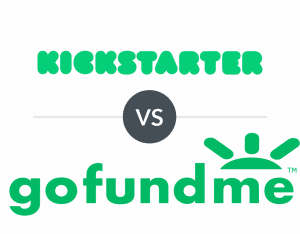Both of these services make it possible for content creators to accept recurring donations, but PayPal and Patreon differ in a few very important ways.
Our content reflects the editorial opinions of our experts. While our site makes money through
referral partnerships, we only partner with companies that meet our standards for quality, as outlined in our independent
rating and scoring system.
Whether you’re looking to solicit donations, get people to pay for access to your content, or both, we’re here to help you choose between two powerhouse platforms: Patreon and PayPal.
Let’s take a closer look at these two payment platforms that, despite their considerable differences, can be used by artists, gamers, podcasters, writers, and video streamers to draw an income.
Patreon VS PayPal: At A Glance Comparison
|
Patreon |
PayPal |
| Crowdfunding Type |
Subscription/recurring & one-time payments |
Subscription/recurring & one-time payments |
| Platform Fee |
10% |
N/A |
| Payment Processing Fee |
2.9% + $0.30 for donations over $3 OR 5% + $0.10 for donations of $3 or less |
Varies |
| Funding Duration |
Unlimited |
Unlimited |
| Funding Model |
Keep It All |
Keep It All |
| Prescreening |
|
|
Where Patreon Wins
- When you use Patreon, you invite people to subscribe to your campaign to access the content you decide to put behind your paywall. This is ideal if you consistently create content and want to receive recurring revenue.
- Although not allowed in the past, users can also make one-time purchases of your content or products (if you create a shop).
- Patreon sets every creator up with a creator page. Use this page to tell your story, detail your membership levels (if you offer more than one), and post your content. When you publish a post, you can either make its content free for everyone or you can make it subscriber-only.
- Depending on your Patreon subscription level, you’ll also have access to crowdfunding services like patron management, reward distribution, analytics, and more.
Where Patreon Falls Short
- While it’s easy to set up your campaign on Patreon, the interface is pretty basic, there is no API, and you’ll need to use third-party integrations for things like live-streaming.
- Fees can get expensive, especially if you want to use more advanced tools that require a high-tier subscription.
- Patreon’s reporting features could be more advanced.
- There have been some user complaints about Patreon’s customer support, including difficulties getting a response.
Where PayPal Wins
- PayPal lets you accept both one-time and recurring payments.
- PayPal has better processing fees than Patreon (especially for nonprofits).
- While you won’t get access to the built-in tools you’ll find with Patreon, PayPal has over 1,500 integrations.
- If you have developing skills, API access is available so you can customize payment and donation options.
Where PayPal Falls Short
- If you want to use PayPal to accept donations and/or offer subscriptions on your web page à la Patreon, you can do so, but PayPal won’t provide the page for you — you’ll have to make one yourself.
- To accept recurring payments, you’ll need to sign up for the Virtual Terminal or a PayPal Payments Pro account.
- If you want crowdfunding features, you’ll need to add them yourself through third-party software integrations with services like MailChimp.
- PayPal’s fee structure can be confusing.
Patreon VS PayPal: Pricing Comparison
If you’re still on the fence about which platform to use, understanding the different pricing structures of Patreon and PayPal may make it easier to make a decision.
While we cover pricing in this section, make sure to check out our PayPal pricing article for a complete breakdown of PayPal’s complex fee structure. For more details on Patreon’s subscription plans and fees, see our Patreon review.
Patreon Platform Fees
With Patreon, your platform fee is a percentage of the contributions you earn, and the rate depends on your subscription level. Platform fees range from 10%.
With a Patreon Pro subscription, the fee is 8%, and with Patreon Premium, it’s 12%. Of course, you’ll get more advanced features and support with pricier subscriptions.
Patreon Processing Fees
In addition to your platform fee, you’ll also need to pay processing fees of 2.9% + $0.30 for donations over $3 OR 5% + $0.10 for donations of $3 or less.
Patreon Additional Fees
US creators receiving a payout via direct deposit pay $0.25 per payout. If you’re receiving a payout via PayPal, you’ll pay 1% of the amount transferred with a minimum of $0.25, capped at $20. You have the option of accepting PayPal payments and receiving payouts via PayPal when using Patreon, though your processing rates and payout fees will be different than they would be if you were using PayPal directly.
Patreon also charges creators a 2.5% currency conversion fee on all payments made in a currency other than the creator’s payout currency.
PayPal Platform Fees
With PayPal, there are no platform fees if you have a standard business account. These accounts allow you to accept one-time contributions, but if you want to be able to take recurring payments, you’ll need to sign up for either a Virtual Terminal or the Payments Pro plan (which includes the Virtual Terminal and other features, but which also charges a slightly higher processing rate than an account using the Virtual Terminal on a standalone basis).
Either of these options costs $30/month, with recurring billing itself costing an additional $10/month, meaning you’ll be paying $40/month to accept recurring payments with PayPal.
PayPal Processing Fees
Processing fees with PayPal can be complex. If you have a standard business account, you’ll pay $3.49 + $0.49 per transaction. If you receive lots of small donations and you’re approved for the Micropayments plan, the rate becomes 4.99% + $0.09 per transaction. These options are for one-time donations or payments.
To accept recurring payments, you’ll need to either:
- Get PayPal’s Virtual Terminal with transaction fees of $2.59 + $0.49 per transaction, OR
- Sign up for Payments Pro, in which case you’ll pay $2.89 + $0.49 for most transactions and 3.49% per American Express transaction.
PayPal Additional Fees
Furthermore, when receiving payments in a currency other than your own, you’ll pay an additional merchant fee (separate from the 3% – 4% currency conversion fees).
When it’s time to get paid, receiving a payout will cost you 2% of the total transaction amount, capped at $1 for US transactions and $20 for international transactions. However, this changes if you take payouts through the Payouts API, in which case you’ll pay a flat $0.25 per payout.
Patreon VS PayPal: Terms Comparison
Signing up for Patreon is easy. Simply input some basic personal information, connect your social media accounts, and set up your payment method to get started. Unlike other platforms, there is no lengthy prescreening process, and while there are some limitations (such as illegal activities or spam), a variety of content and products can be posted on Patreon.
Because Patreon is designed for subscriptions/recurring content, there are no funding duration limits like other platforms.
Signing up for PayPal is also easy. For a basic Business account, simply provide personal information, information about your business, and ag
Which Is Best For My Business?
If you’re looking to fund your creative business or project by accepting donations or offering subscriptions, Patreon and PayPal can both be used to facilitate earning an income. Here’s the bottom line on the best use cases for each.
Choose Patreon If…
- You want to accept recurring donations or sell subscriptions to your content
- You want an all-in-one platform that helps you handle all aspects of the crowdfunding process
- You consistently create content and want to make it available to your subscribers through one of the most popular platforms
Choose PayPal If…
- You have a website or blog (or plan to create one) to solicit contributions from your site visitors
- You want to easily receive one-time donations or payments
- You want to accept recurring donations or sell subscriptions, you want to keep as much of what you earn as possible, and you are prepared to handle the technical work necessary to do so
You may find that neither option is the right fit. If Patreon sounds close to what you’re looking for but doesn’t get it quite right, check out the best Patreon competitors. And if PayPal is close to what you want, but you’d like to explore competitors, check out the best PayPal alternatives.












